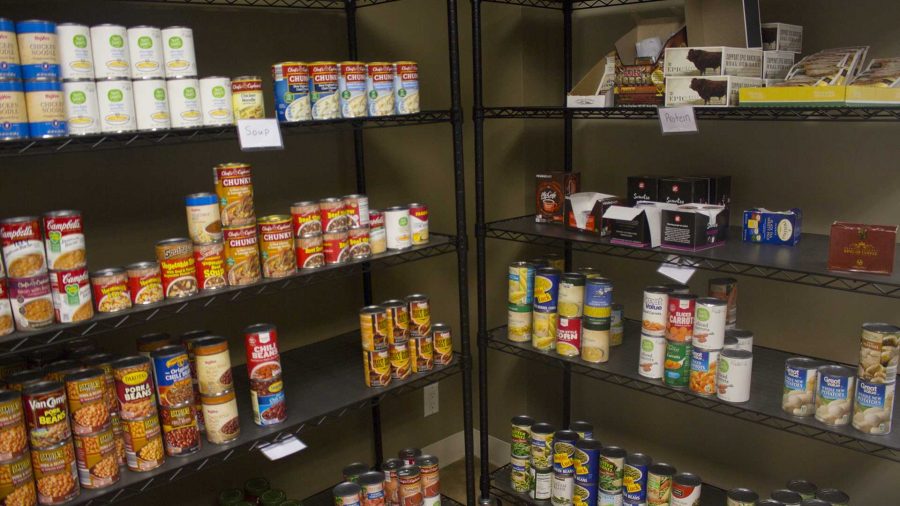According to Iowa Food Pantry, 48 percent of students in the U.S. are food insecure.
For more than a year now, UI students and members of the community have spearheaded a program to fight against food insecurity locally with the Iowa Food Pantry, located 209 IMU.
In its first year, the Iowa Food Pantry served 195 students in need, saw 835 visits, and dealt out 9,040 pounds of food, and it isn’t slowing down. Now, it has served 277 students and has seen more than 1,000 visits.
The pantry is run by UI students for students, faculty, and staff, offering essential items such as nutritious food, gluten-free and vegan varieties, as well as such hygiene products as diapers and toothbrushes.
“It’s something we need on campus,” Food Pantry manager Rachel Whitesitt said. “The really good thing is how accessible it is to students; they don’t need a bike or a car.”
Whitesitt said that some individuals who visit the pantry bring in friends and others to the service.
“Food insecurity affects everyone,” Executive Director Carissa Bailey said. “Undergrads, grad students, families.”
RELATED: Food pantry blooms
The Food Pantry not only prides itself on the services that it provides for fellow Hawks but also for how the staff members treat the delicate situations their clients have.
“We’re trying to make a comfortable and welcoming environment,” Whitesitt said.
Program summer director Charlie Rupp devoted her spare time to join the program while working a laboratory job.
“It’s really rewarding to make a difference,” Rupp said.
The services of the Food Pantry are made possible with more than a few helping hands from all over Iowa City. It receives a great deal of food from other nonprofits, including the Johnson County Crisis Center and Table to Table.
With the help of UI Student Government funding, the Food Pantry can provide its own supplies. In addition, the UI Gardeners provide fresh produce.
Bailey believes with feedback she’s received from people, the facility is not only a boon to a people’s nutritional health, it aids students’ academics as well.
“If you don’t know where your next meal is coming from, or [you’re] eating food that makes you tired, it is really difficult to focus in lectures or meetings,” Bailey wrote in an email to The Daily Iowan. “We hope that the Food Pantry helps members of the UI community live with one fewer distraction.”
After a year of serving people in need, the Food Pantry is prepared to do even more. In the facility’s second year, Bailey and the rest of the directors plan to expand as an educational resource on food insecurity in hopes that the pantry can evolve into an advocacy program.



